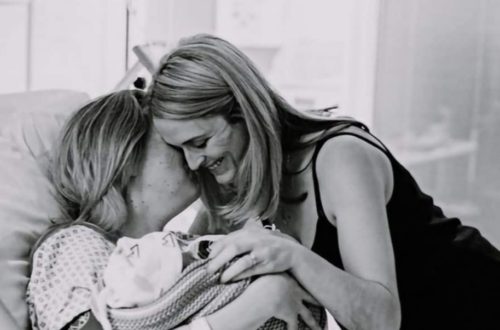
Fertility; The important counselling factor
Hello, we’re Tracey and John. We’d like to introduce ourselves and tell you about the counselling that’s on offer from My Surrogacy Journey, the latest UK non profit supporting everyone on a route to parenthood.
About us

John gained his postgraduate diploma in person-centred counselling from Nottingham Trent University in 2003, and began working as an infertility counsellor in 2005. He is currently employed by the Hewitt Fertility Centre at Liverpool Women’s Hospital. As a person-centred counsellor, he’ll encourage you to bring your own issues to the session – the counselling is led by you and not directed by the counsellor. Many clients with no prior knowledge of counselling believe that the counsellor will sort their problems out for them. A person-centred counsellor will help you to explore your own issues, feelings, beliefs, behaviour, and worldview, so you can become more self-aware. They do this by providing a relationship free from threat or judgement, with a therapist who is understanding, accepting and genuine.

Tracey is an integrative counsellor for individuals and couples, with over twenty years experience in the field of fertility; initially volunteering with the charities that merged to form Fertility Network UK and going on to work as a Senior Fertility Counsellor in two large clinics. Tracey is delighted to be working with My Surrogacy Journey. Tracey has a keen interest in Interpersonal Neurobiology which includes the significance of pre-birth attachment to promote family attunement; this means she will endeavour to ensure you’re comfy with your planned pathway to parenthood ahead of conceiving, and will work with you maintain your relationships throughout your surrogacy journey.
Tracey and John are both members of the British Association for Counselling and Psychotherapy, and hold additional specialist Accreditation with BICA, the British Infertility Counselling Association.
What is counselling?
Counselling is sometimes called ’talking therapy’. It’s a safe, confidential space to discuss problems and concerns, or simply explore thoughts and feelings with the help of a trained therapist.

Counselling provides an opportunity to pause, reflect on your fertility journey so far, acknowledge the present and embrace the future. It’s a safe and confidential space for you to explore how you’re feeling individually and together (if you’re in a relationship), but will also provide a space to talk about your relationships with friends, family and within your ‘surrogacy team’: intended parent(s), surrogate and their partner, if they have one. Often we can be surprised by how impactful the actions and behaviours are of those trying to support us, and how we react individually, once surrogacy plans become a reality. Your counsellor will help you explore your thoughts, feelings and behaviours so you can develop a better understanding of yourself and of others. They will be impartial but understanding. They will listen to you without judgment. They may offer information, but they won’t tell you what you should think or do. Counselling can also provide you with additional resources and strategies to support you as you move forwards.
As you progress on your journey you will be asked to attend implications counselling by your chosen clinic. The counselling we offer is not a duplication or replacement for that, but complimentary to it. We offer counselling sessions at different points in your journey when we think you might benefit from some time to pause and reflect, but how you use the sessions is up to you.
How you might benefit from counselling?
You might be wondering why we put so much emphasis on counselling and other types of emotional support. Getting the right kind of emotional support from trained and experienced professionals can really help you have a smoother, more pleasurable and less stressful experience of surrogacy. You don’t have to have a ‘problem’ to attend counselling. In fact, seeing a counsellor to reflect on how things are at different stages of your surrogacy journey can help to prevent problems arising in the first place.
It’s vital that the relationships between everyone involved in your surrogacy team are strong. Open, honest communication will help you navigate the road ahead. We know when things go wrong in surrogacy it’s often because people didn’t feel they could be honest with each other, or they suppressed and ignored concerns they had. We may hide how we really feel out of a fear of causing offence, or because we’re worried it will affect the progress of a surrogacy arrangement that may have taken a very long time to organise.

The risk here is that those concerns and worries will surface at some point in the future, perhaps at a time when it’s even more difficult to talk about them, when it can feel like things have ‘gone too far’ to sort out, or when you and the rest of your surrogacy team might be feeling vulnerable or anxious.
Talk it through
It’s tempting to think that everyone in your surrogacy team should feel the same about every aspect of your journey, and all be on the same page at the same time. Realising that you think or feel differently can be a surprise. Talking things through with a counsellor can help you get a clearer understanding of other people’s perspectives and help you to work out when differences are a problem, and when they’re OK.
You’ll get the best results from your counselling if you’re open and honest with your counsellor. Say how you’re really feeling. Your relationship with your counsellor is very important. If you’re to work effectively together, you should feel safe. You should be able to take risks by disclosing and discussing sensitive issues. That includes being able to give them honest feedback on how you feel about your therapy and how you’re working together.
We look forward to seeing you soon.






